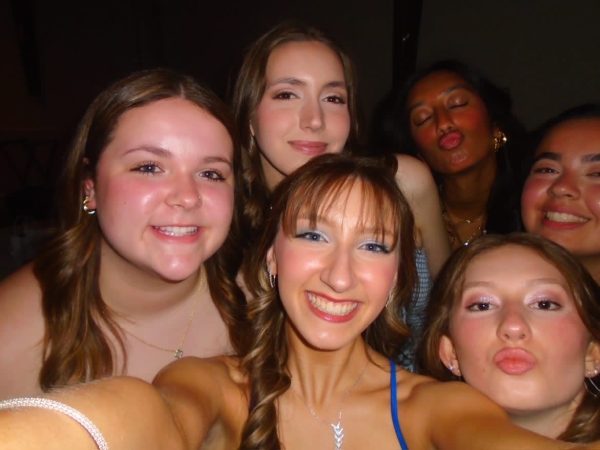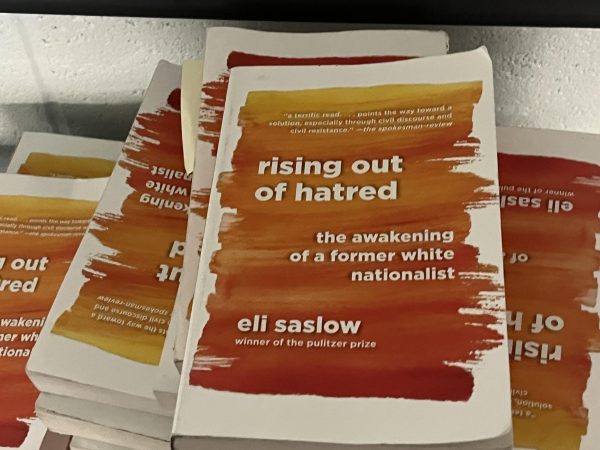Another Year of “Oscar Bait”

April 18, 2022
The Academy Awards got upstaged by a slap this year not only by controversy, but because their winners and nominations are as mundane as they’ve become predictable. The Oscar is intended to recognize true cinematic achievement. Meant for only those who worship a craft and its dogma so thoroughly that their art doesn’t even need a golden statue to feel innovative. To stand in the front of the Dolby Atmos Theater before colossal celebrities should describe the work as both exemplar and revolutionary. While the 94th Annual Academy Awards weren’t the most atrocious night in their catalog, they again are another year full of awarding transparent Oscar bait and pursuing a tired underdog narrative.
Oscar bait is a phenomenon in which movies are made entirely to campaign for and win Academy Awards. The Organization T.V Tropes describes it as,
“instead of expecting an Oscar to be a natural side-effect of a film being exceptionally good, studios and producers have often tried to engineer certain films specifically to attract Oscar nominations. Typically, the results are more serious, depressing, or “artistic” films. They’re Oscar Bait.” Examples include the slew of actors who win statues simply because they play a tragic character in a standard biopic. From Rami Malek as Freddy Mercury, Rachel Zellweger as Judy Garland, and after this award season Jessica Chastain as Tammy Faye Baker. These movies are designed to acquire these awards. Chronological narrative, a big tearjerker scene, and some looming human rights narrative that is either poorly explored or dreadfully cliche. Together, they perpetrate the biggest cinematic sin; boredom. Moreover, there is a way to do a biopic well and earn an acting Oscar for it.
Kristen Stewart’s nominated performance as Princess Diana in “Spencer ” had complexity, edge, and subversion of the typical biopic that was transformative to the genre. Utilizing the emphasis on absurdity and the grotesque she challenges what is audience-ready Oscar bait. Nonetheless, Chastain won the award. Although she is probably the most engaging part of her film “The Eyes Of Tammy Faye,” it is yet again a cookie-cutter movie with a surface-level staircase to a trophy.
“Coda” is a fine movie. Much like the aforementioned “Eyes of Tammy Faye” Audiences sit down, cry, and are already out doing something else. Not technically masterful, revolutionary, or challenging, “Coda ” isn’t a game-changer. Moreover, I disagree with the Academy’s choice to award the film ‘Best Picture.’ Especially over the opposing nominee, “The Power of The Dog;” director Jane Campion’s polarizing film and a critical tour de force that almost everyone thought was getting the ‘Best Picture Oscar.
However, this is the exact reason the Academy Awards selected “Coda.” In the recent years amid their floundering ratings and consistent string of problematic choices, The Academy has relished the underdog story. Beginning back in 2017 when “Moonlight” rightfully defeated “La La Land ” in best picture, the Oscars have begun a trend of attempting to recognize the underdog. A movie underlooked, pushed aside, or the “first” of its kind to win ‘Best Picture.’ Prior to this award season, the strategy had been working.
Aside from blase white savior flick “Green Book ” the best pictures have been great. Examples like the first foreign film ‘best picture winner “Parasite” by Bong Joon Ho, or the first Chinese-American woman to win best picture last year with Chloe Zhao’s “Nomadland;” fantastic cinema has been championed.
However, “Coda’s” win prompts confusion. Unlike superior films utilizing this trend to become rightfully awarded films, “Coda” is somewhat of a letdown. The feel-good family feature defeats a gripping, dramatic masterpiece. It is as though the Academy decided to choose a film that could break a headline rather than celebrate achievement.
Together, my Oscar viewing was still entertaining. Cataclysmic drama, wonderful speeches from Actors like Ariana Debose, and deplorable to successful fashion; my time was well spent. However, I fear greater trends of boring filmmaking still develop and continue to acquire accolades.
The “best” shouldn’t be safe. The best should be thoughtful, independent, and forward-thinking. No cliches or formats, instead showcasing cinematic achievement.


















